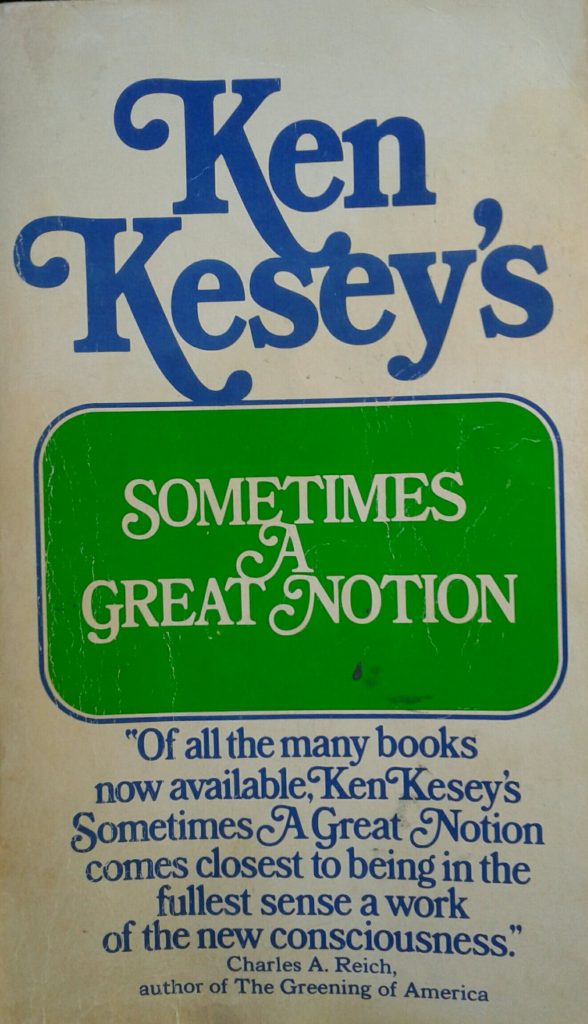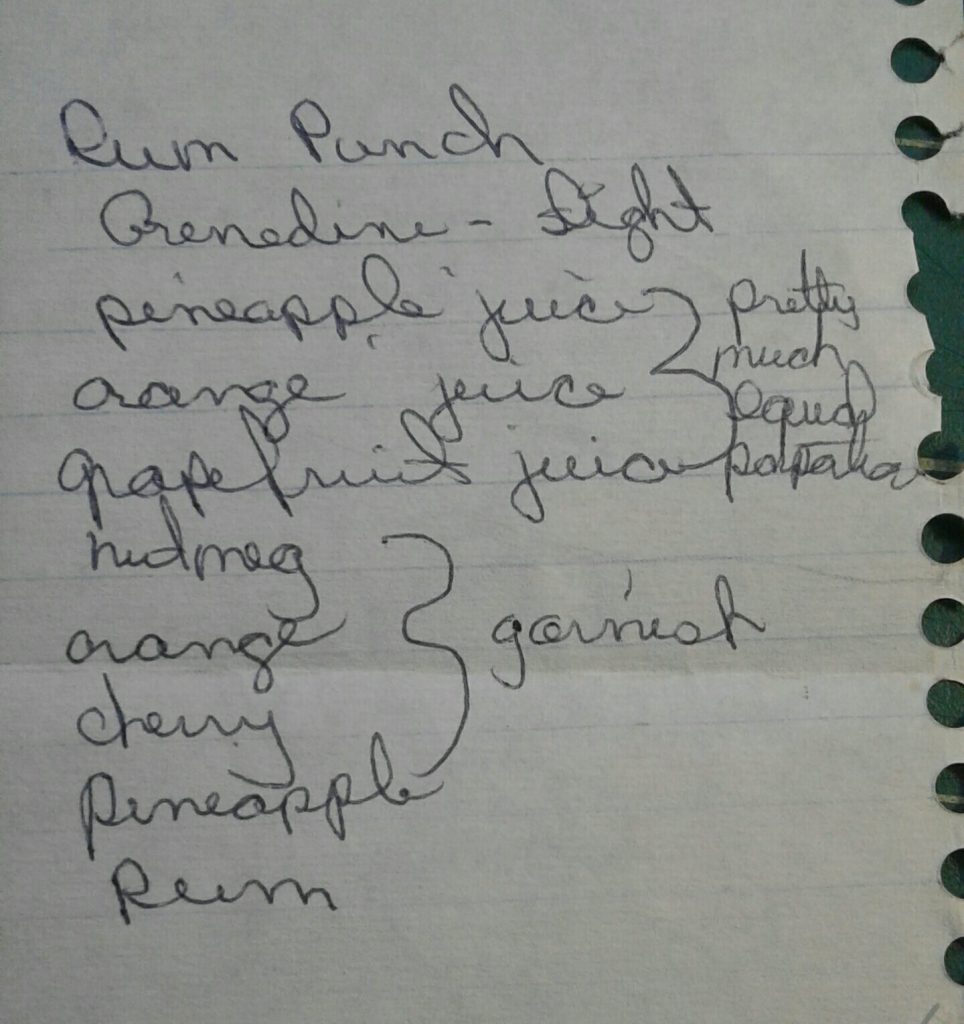By Ken Kesey

I ordered this for cheap from a seller on Amazon. It arrived in beautifully aged condition, with the added bonus of a recipe for Rum Punch tucked in between pages 368 and 9. It goes as follows:

I didn’t buy this book because of the cover as I sometimes do. This is the no frills addition by Bantam Books, 1972, the year of my birth and 8 years after the first edition.
I bought it because I had finally read “One Flew Over the Coo Coo’s Nest”, and I wanted more. There were many reasons for this, but one of those reasons was that they both take place in Oregon. I get this nerdy thrill when reading stories that take place in towns I have been to. It reaches the level of fetish when I am in that place at the time of reading, and then it’s like a nerdgasm. I felt just such a feeling when I read Trainspotting while living in Leith, the neighborhood where it takes place.
So, what the hell is this book about? Well, it’s about some loggers, the union, some revenge, and lots of rain, etc. This is considered by some to be Ken Kesey’s best novel, and many say it has a place among all the classic American novels. I agree. I liked ‘Coo Coo’ better, because it was an easier read, more emotionally immediate, more hallucinatory, more anti establishment; and while it’s themes are universal, it’s surface is somewhat rooted in it’s time.
“‘A Great Notion’ is more timeless, and more subtly complex. The characters are more numerous and more complicated. It is nearly 600 pages long and takes time and commitment to read, but it’s worth it. It is a more mature novel that deserves to be considered a classic.
It’s main narrative device is to jump from person to person. It’s internal narratives move seamlessly through multiple minds, as though the reader is telepathic. We see events from all perspectives in simultaneous chaos.
Emotionally, It breaks your heart as much as ‘Coo Coo’ but it does it slowly throughout, and it’s resolution is just as surprising. I honestly could not tell who the hero was and who the villain was, and I ended up being wrong on both accounts.
Kesey’s most poetic passages are about the cold, the wet, and the rain which in Oregon is 9 months out of the year, but we like it that way. It keeps the riffraff away, as they say.
And, I’ll pose a question to anyone who has read it. Did anyone else think Hank might actually be Leland’s father? I’ll have to read it again some time.